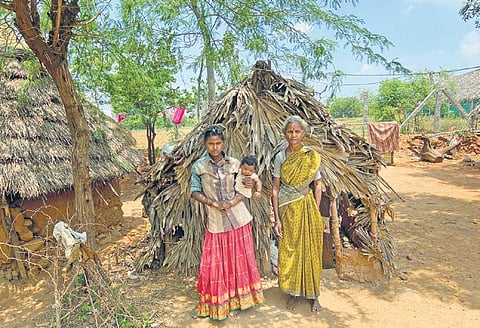

CHENNAI: A survey by the SRM School of Public Health has found that fewer than 50 per cent of Irular tribals living in the State are aware of vaccination against Hepatitis virus. The ongoing survey is part of a study funded by the Indian Council of Medical Research (ICMR). It aims to establish a public-private partnership to increase Hepatitis B vaccination levels among the Irular tribals in Tamil Nadu.
The scientists part of the survey visited up to 30 villages in Dharmapuri and Kancheepuram district, where the tribal population is high, and surveyed a total of 908 people. Out of the 711 people surveyed in Kancheepuram, only 46.4 per cent of people knew about the vaccine.
Similarly, of the 197 people surveyed in Dharmapuri, only 37 per cent knew about the same. The 30 hamlets surveyed include Sippanaiyur, Madurandhagam, Irulapatti, Keerapatti, and Pappireddipatti.
Dr. Roshni Mary Peter, a community medicine doctor at SRM, who was part of the study, said she came to know about the high prevalence of Hepatitis virus among tribals during her outreach work in nine rural villages in the State. “Following this, we applied for a study on this and the ICMR granted the project. The survey began this year,” she said.
Roshni said the Hepatitis virus has five variants – A, B, C, D, and E, of which A and E variants are transmitted through contaminated water, while the rest are transmitted through blood and blood products. "The tribals were prone to substance abuse, tattooing, and unhygienic conditions, during which transmission possibilities are high. The prevalence is seen in tribals migrated from other parts of the State," she said.
According to the survey, 46.3 per cent people in Kancheepuram and 36.5 per cent in Dharmapuri said they would want their children to get vaccinated against the virus. Similarly, only 28.6 per cent tribals in Kancheepuram and 27.9 per cent in Dharmapuri had good knowledge about Hepatitis infection.
Dhasarathi K, scientist and research assistant for the survey, said ‘good knowledge’ comprises of people who correctly answered questions on the symptoms, causes, and complications of the Hepatitis B virus. "Some of them exactly knew the organ the virus affected, symptoms like jaundice and also prevention measures. But large-scale awareness is still needed," she said.
The survey is ongoing and is likely to be expanded to Salem district as well. "We took the survey through verbal recordings," she added.
The study not just aims to spread awareness among tribals but also doctors. "Through a Continuous Medical Education (CME) programme, we are educating doctors as well. More than 25 doctors have participated in the programme," said principal investigator of the study, Dr. Alex Joseph, who is also an epidemiologist at the SRM School of Public Health. Alex said there was free treatment and vaccination for Hepatitis, and with this awareness reaching people, the virus could be eliminated.
What is Hepatitis?
A serious liver infection that’s easily preventable by a vaccine
How is it transmitted?
Through blood and blood products, sexual intercourse
What are its symptoms?
Yellowing of skin, abdominal pain, dark urine, weakness and fatigue, joint pain